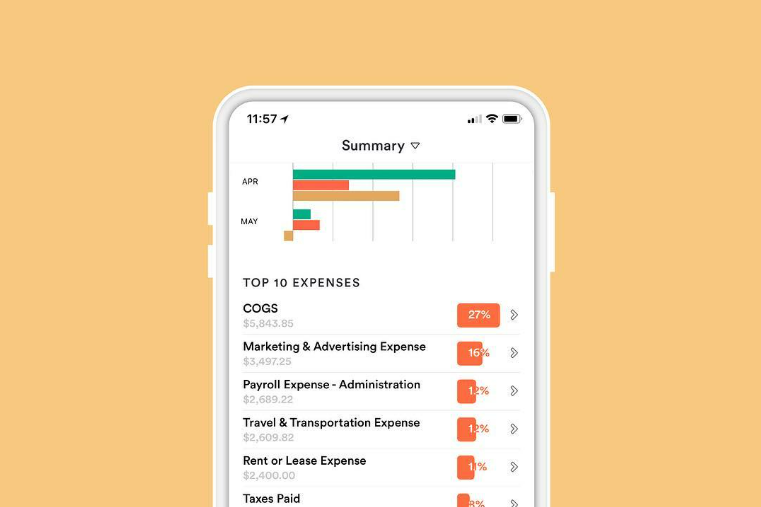How to Deduct Your Cell Phone Bill on Your Taxes
Chances are you use a mobile phone to conduct business. Whether you’re taking calls with clients, answering emails, or checking your business financials on the go, your cell phone most likely plays an important role in your entrepreneurial adventure. So, if you use your cell phone to conduct business, it’s reasonable to ask, “how much of my phone bill can I claim as a business expense?”, right?
Unfortunately, it’s not that simple. The Canada Revenue Agency has defined how much of a cell phone bill can be written off when you’re running a business (or an employee conducting business), and the rules can be a bit unclear...
Is my cell phone bill a small business expense?
The short answer to this question is yes—it can be. But that depends on a variety of factors, from the circumstances of your employment to the amount and type of phone plan that you have to what percentage of it you use for business purposes.
According to the CRA, to claim your cell phone usage related to your small business, the CRA outlines that it must be:
On a plan that is reasonably priced
That plan needs to be basic with fixed costs
Your usage cannot result in charges that are more than the plan cost
So, your monthly cell phone expenses might be deductible if you are subscribed to a fixed, reasonably-priced plan and don’t incur a lot of additional charges.
Sharing a business and personal phone
Most entrepreneurs don’t purchase a whole new phone to solely conduct business; they simply use their personal one. If you’re using a cell phone for both business and personal use, you can only claim the portion that relates to your business use. When you claim these, you need to file them as a “business use of home expense.”
So, you will need to start by identifying how much of your phone is used for business and how much is used for personal calls, texting and other purposes.
Example Calculation:
Let’s say you use your cellphone for business purposes from 9 AM to 6 PM, 7 days per week. That’s a total 63 hours worked per week (the joys of being self-employed!).
Then, let’s say you typically spend 5 hours per day on your phone for things not business related, like scrolling Facebook and texting friends — that's 35 hours per week.
So then, you would take the 63 hours of business use, and divide that by the total phone use per week (98 hours). That gives you a percentage of about 64% business use and 56% personal use.
So, if your phone bill is $100 per month, I can take a tax deduction of $64 per month, or $768 per year.
Cellphone expenses might get more scrutiny than the rest of your deductions on your tax return, so it’s important to make sure you are meeting all of the criteria below.
CRA terms to consider
There are three really important things to consider when evaluating your cell phone expenses related to your tax return filings:
Reasonable is a term used a lot by the CRA in the rulebook, and what it means varies. What’s reasonable for a small retail shop will vary from a freelance writer. Not only that, but the definition of reasonable for your business will need to meet the CRA’s idea of reasonableness as well.
Everything that’s deducted or given as a benefit has to be related to the cost of doing business. That means personal use, like watching the latest show on Netflix, does not meet that criteria—so, think critically.
Finally, all business expenses (not just the ones related to your cell phone) need to be supported by documentation. That means keeping all of your receipts and invoices for six years. You also need to claim expenses incurred in the fiscal year you’re filing taxes.
Finances on autopilot
Spend less time worrying about bookkeeping, and more time running your business. Small-Books is your all-in-one financial toolkit.
Learn more
Cell phone as a capital cost?
Your cell phone might also be considered in your business’s capital cost allowance. According to the CRA, a cell phone falls under Class 8 CCA and has a depreciation rate of 20 per cent, unless it costs more than $1,000. If the phone costs more than $1,000, you can choose to group it in a separate class. Should you do this, the CCA rate won’t be affected, but there is a separate CCA deduction that can be calculated for a period of five years.
That means that when you purchase a cell phone specifically for your business, you might be able to recover at least some of the cost of the phone.
Employers, employees, and cell phones
Self-employment is one thing, but what if you have employees that require cell phones for their job? The Canadian workforce is becoming increasingly mobile, and there might be instances where your employees require or use cell phones to get their day-to-day work done. How do you deal with that expense?
Fringe benefit
While giving your employee a cell phone is not considered a taxable benefit, it can be considered a fringe benefit if you reimburse them for the costs.
Fringe benefits are additional benefits employees receive as part of their compensation that isn’t directly their salary—like paid time off or health insurance. Phone usage could fall into that category.
In the case of fringe benefits, you’ll need to reimburse employees for using their personal cell phones as it relates to your business.
Commission employees
If you are or have employees that earn a commission, reasonable expenses related to those earnings can be claimed as a deduction. Let’s say you sell cars and your cell phone is your means of conducting client business—that means you should be able to claim a reasonable amount of your bill as a tax deduction.
However, you cannot claim capital cost allowance if you buy a new cell phone. That includes not being able to claim the interest you paid on money you borrowed to buy it. You are also not able to deduct amounts for connecting or licensing a cell phone.
Getting the most out of your cell phone expenses
Being an entrepreneur can be pricey, and it’s important that you claim all of the benefits and credits you’re entitled to. That’s being fiscally responsible when it comes to running a business.
So, when it comes to your cell phone usage (or your employees) for business purposes, you want to get the most out of it.
It’s important to remember that your accountant will be the best source of information for what you can and can’t claim related to your business when you do your tax returns, including your cell phone. Make sure to consult them to find out what’s best for you.
That’s where Small-Books comes in
To claim these deductions, you’ll need to keep accurate records and stay on top of your monthly bookkeeping.
But bookkeeping can be a full-time job for many small business owners! If you don’t have the time to keep up with it all, check out Small-Books.
We record these deductions each month for you, so you can be confident you’re catching each one! We’ll even file your taxes.
This post is to be used for informational purposes only and does not constitute legal, business, or tax advice. Each person should consult his or her own attorney, business advisor, or tax advisor with respect to matters referenced in this post. Small-Books assumes no liability for actions taken in reliance upon the information contained herein.




